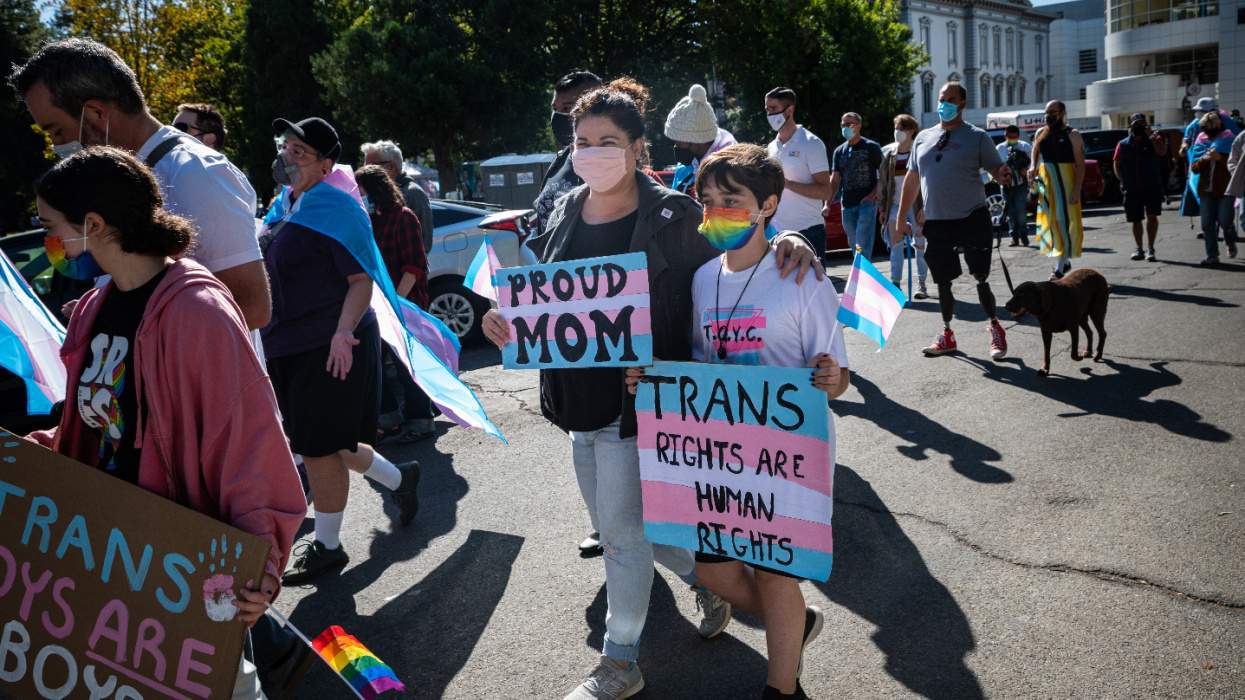The Southern Poverty Law Center filed a federal lawsuit Thursday on behalf of Ashley Diamond, a 36-year-old black trans woman, alleging that the Georgia Department of Corrections has violated her Eighth Amendment rights by not providing access to medically necessary hormone treatments and not protecting her from harassment and repeated rapes by other inmates.
Diamond, who has been incarcerated in several state men's prisons for nearly three years, was taken off the hormone therapy she'd been on for 17 years when she was arrested in 2012 for burglary and theft, according to her lawsuit. Her feminine undergarments were confiscated when she was detained, and Diamond is not allowed to wear her hair long or express herself in other gender-affirming ways. The lack of hormone therapy, the lawsuit notes, has in effect forced Diamond to "transition back" to male, which has taken a serious toll on her mental health.
Diamond has also allegedly been exposed to harassment while imprisoned, including being called derogatory names like "he-she thing" by a staff member, told to "act like a man," and told to "guard her booty" by a guard reportedly implying that she should expect to be raped. She has allegedly been punished, including with one stint in solitary confinement for being insufficiently "masculine," notes the lawsuit. In addition, Diamond has allegedly been raped at least seven times while imprisoned, often by her cellmates, and sees no indication that her risk for sexual assault will lessen, says SPLC attorney Chinyere Ezie in the video below.
SPLC contends that denial of medically necessary healthcare and failure to protect against rape constitutes "cruel and unusual punishment" of a prisoner, which is forbidden by the U.S. Constitution. The federal government has upheld these interpretations of the Eighth Amendment in previous cases involving trans women, including, notably, a 2011 case that saw a Wisconsin "sex change prevention" law for prisoners struck down and the 1994 case of Farmer v. Brennan. In that case, a trans woman of color litigant broke new ground when her defense successfully argued that prisons unfairly punish inmates when jails fail to keep inmates safe from physical and sexual violence.
Importantly, state-run prisons do not have to abide by the federal regulations concerning access to transition-related health care; Georgia, like most states, has not passed such laws. All prisons, however, are subject to the Prison Rape Elimination Act of 2003 that demands a "zero tolerance" policy" for sexual assault; audits on whether prisons have complied with PREA's provisions began in 2013, according to the American Civil Liberties Union.
Research has found that transgender women are particularly vulnerable to rape while housed in men's prisons. While LGBT inmates in general are at nine times a higher risk for sexual assault according to government data, one 2009 California study found that trans women faced 13 times the risk of LGB inmates when detained in male facilities. PREA recommends facilities be aware of trans prisoners' unique safety needs, and assess "case-by-case" how to protect them from sexual assault.
Diamond herself, in the video below, describes her treatment as "gross human rights violations," "torture," and as a "death sentence." In her lawsuit, she explains how she has suffered depression and gender dysphoria as a result of being denied her gender expression and being repeatedly raped, disclosing that she has previously attempted to commit suicide. Her prison doctors have recommended Diamond be given access to hormone treatment, but the prison administration has not changed its position on her medical plan, despite Diamond filing several lawsuits and pressure from the SPLC in 2014, according to Buzzfeed News.
Six months ago, Diamond began secretly recording short clips of herself reporting on her experiences in prison, and posted them to YouTube in a series entitled Memoirs of a Chain Gang Sissy. Hear more from Diamond and SPLC below in a collection of her videos edited together by SPLC.















Charlie Kirk DID say stoning gay people was the 'perfect law' — and these other heinous quotes
These are some of his worst comments about LGBTQ+ people made by Charlie Kirk.